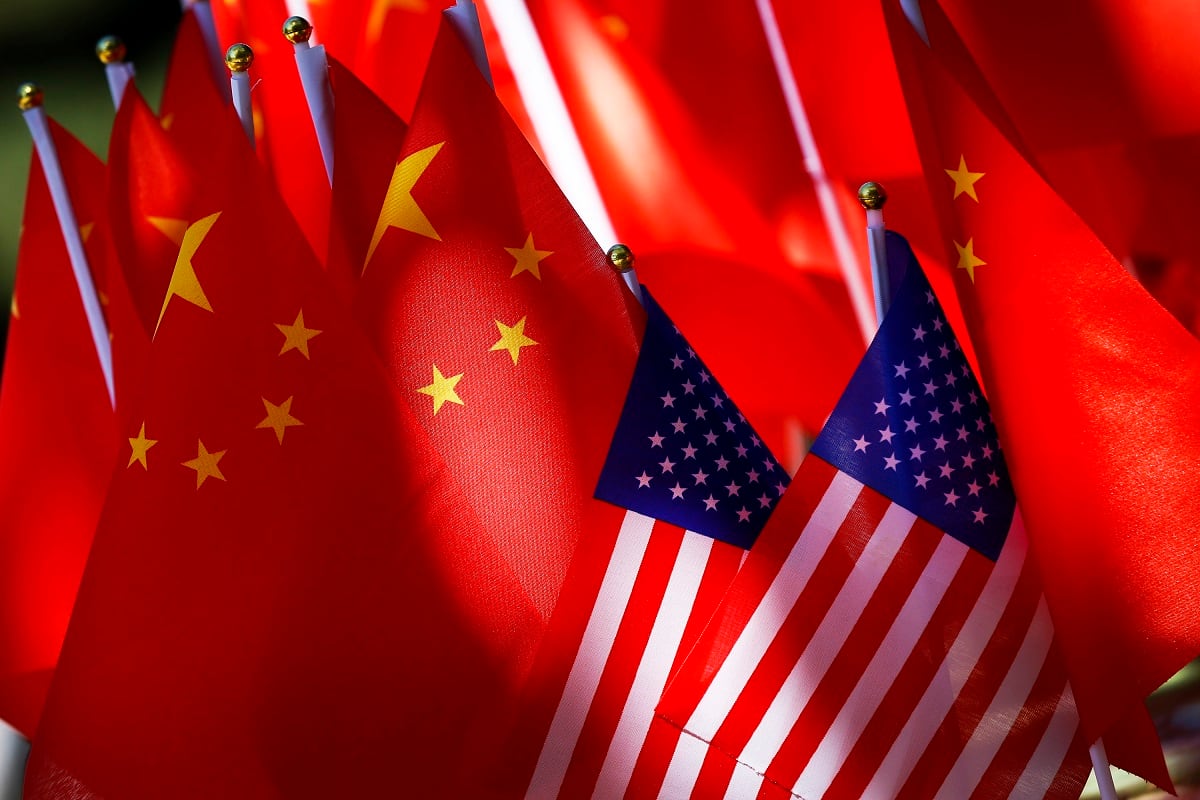WESTLAKE VILLAGE, Calif. — Nearly three decades after the Cold War ended, a new strategy of containment is underway at the Pentagon.
Innovation leaders from the Pentagon and Silicon Valley spoke about that strategy to hold back China from military technology domination during a roundtable hosted by Defense News just outside of Simi Valley, California. All participants emphasized the need for thoughtful tactics to lure support from the most advanced minds.
“It’s not about us and China. It’s a world order,” said Hawk Carlisle, CEO of the National Defense Industrial Association and a former U.S. Air Force four-star general. “China would like the world order to change to fit their vision of what it should look like, which is authoritarian in many ways."
Unlike the United States, China can — as an authoritarian regime — dictate to the country’s research and development communities as well as industry what will filter into military applications. This civil-military fusion has enabled China to launch a series of what Defense Innovation Unit Managing Director Michael Brown called “so-called Manhattan projects” — 16 of them in all — “where they bring together government, business and academia to focus on making significant progress in a particular technology or industry sector.”
“China is already benefiting from the long-term focus on investment. They are planning out 10 and 20 years. We can see exactly their intention,” Brown said.
Artificial intelligence, a key area of competition between the U.S. and China, stands as a notable example for what’s at stake: In lieu of restrictions tied to civil liberties and privacy, China can gather a lot more data more quickly, and therefore do more correlation, with few to any limitations.
RELATED

“There is going to be an authoritarian way of doing AI for national security,” said Josh Marcuse, executive director of the Pentagon’s Defense Innovation Board. “China will lead it and Russia will do it as well, and they’re going to export that around the world to other regimes that don’t respect human rights and civil liberties. There is going to be a way in which they do it, and I think it’s going to be — and already is — deeply unsettling and concerning.”
Complicating matters for the West, the reality is that the most advanced minds in technology don’t have to contribute to military development. Attracting those individuals, some of whom are skeptical of military tactics, to the Defense Department requires a carefully constructed approach to development that maintains firm ethical boundaries.
But that approach is not clearly defined, Marcuse said.
“The question is: What is the American way of AI, and how do we ensure that when we adopt these technologies, we do it in a way that is consistent with our deeply held values and convictions about international and humanitarian law, a law of war, just war theory, and our constitution? Because if the people that know how to do this work systematically choose not to work with us, and the Chinese authorities can force those people to work with them, that is going to have a devastating impact over time to our ability to fulfill our mission.”
The Pentagon’s Joint AI Center, established in July 2018, is focused on this question of ethics, with Marcuse pointing to “a listening tour” underway that invites leading thinkers, including critics, to contribute to what will ultimately be filtered into a code of conduct. The effort has the full support of top leadership, he added.
“If this is not an ethics-first approach, led by a sense we’ll do the right thing — a virtuous approach that’s consistent with our values — we will lose.”
Jill Aitoro is editor of Defense News. She is also executive editor of Sightline Media's Business-to-Government group, including Defense News, C4ISRNET, Federal Times and Fifth Domain. She brings over 15 years’ experience in editing and reporting on defense and federal programs, policy, procurement, and technology.








